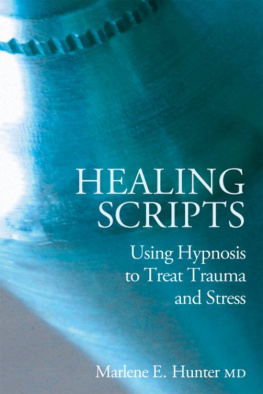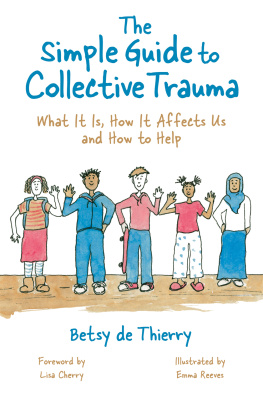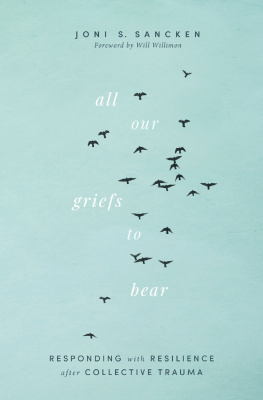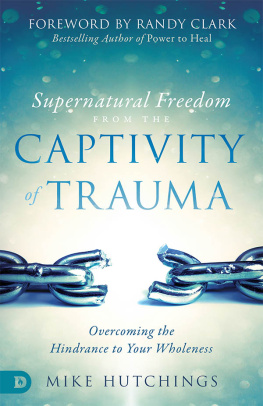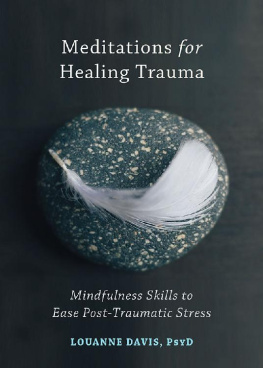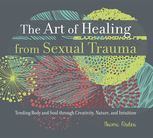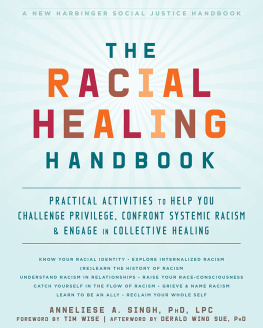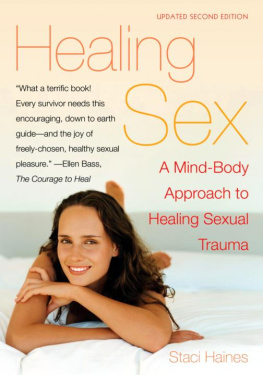Thomas Hübl - Healing Collective Trauma
Here you can read online Thomas Hübl - Healing Collective Trauma full text of the book (entire story) in english for free. Download pdf and epub, get meaning, cover and reviews about this ebook. year: 2020, publisher: Sounds True, genre: Religion. Description of the work, (preface) as well as reviews are available. Best literature library LitArk.com created for fans of good reading and offers a wide selection of genres:
Romance novel
Science fiction
Adventure
Detective
Science
History
Home and family
Prose
Art
Politics
Computer
Non-fiction
Religion
Business
Children
Humor
Choose a favorite category and find really read worthwhile books. Enjoy immersion in the world of imagination, feel the emotions of the characters or learn something new for yourself, make an fascinating discovery.

- Book:Healing Collective Trauma
- Author:
- Publisher:Sounds True
- Genre:
- Year:2020
- Rating:3 / 5
- Favourites:Add to favourites
- Your mark:
- 60
- 1
- 2
- 3
- 4
- 5
Healing Collective Trauma: summary, description and annotation
We offer to read an annotation, description, summary or preface (depends on what the author of the book "Healing Collective Trauma" wrote himself). If you haven't found the necessary information about the book — write in the comments, we will try to find it.
Thomas Hübl: author's other books
Who wrote Healing Collective Trauma? Find out the surname, the name of the author of the book and a list of all author's works by series.
Healing Collective Trauma — read online for free the complete book (whole text) full work
Below is the text of the book, divided by pages. System saving the place of the last page read, allows you to conveniently read the book "Healing Collective Trauma" online for free, without having to search again every time where you left off. Put a bookmark, and you can go to the page where you finished reading at any time.
Font size:
Interval:
Bookmark:
Table of Contents
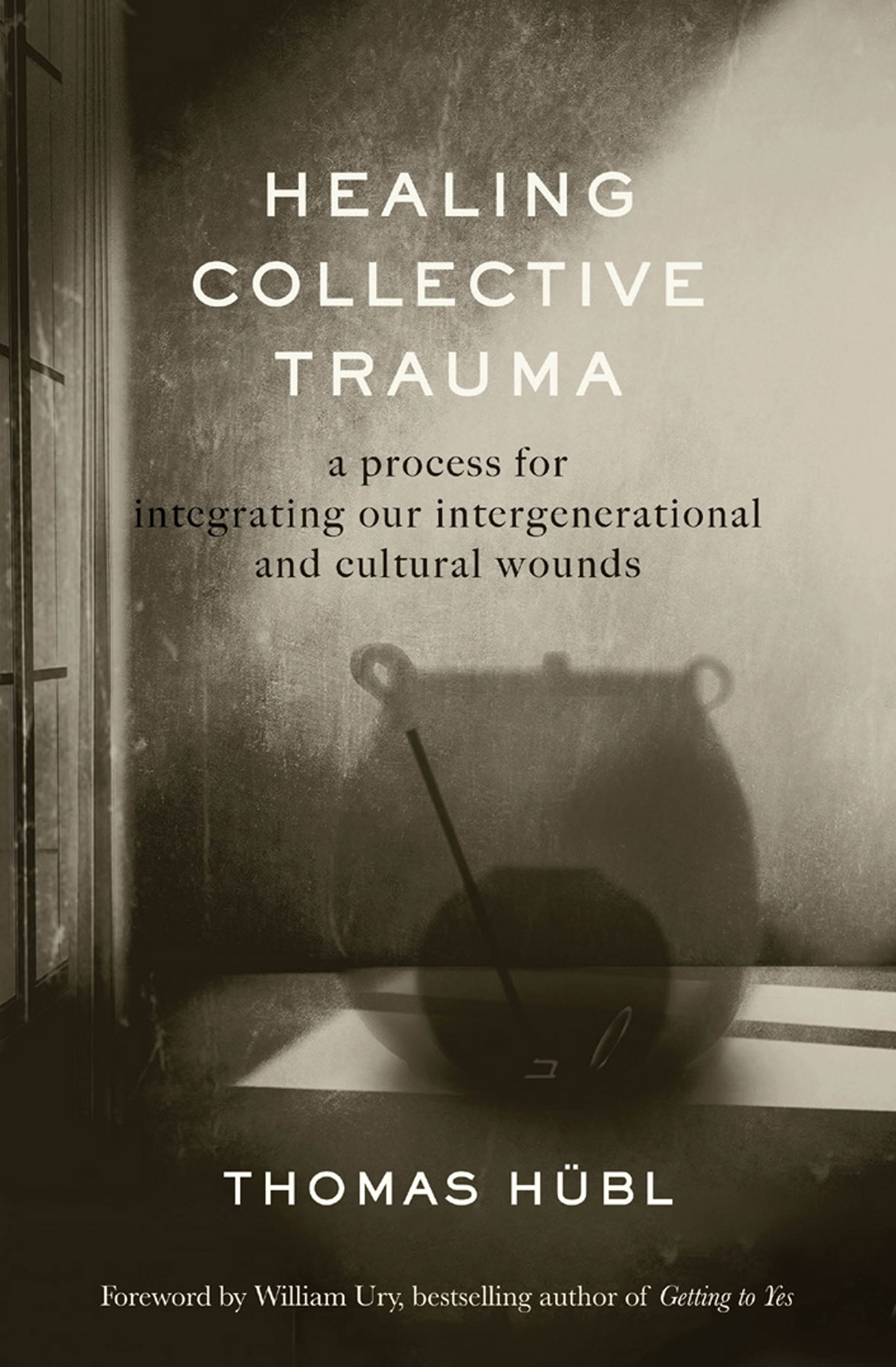

Bowing down to the revelation of our emerging Future,
which is calling us...
I t is a great pleasure to commend to you this insightful, wise, and critically important book on healing collective trauma, written by my friend and colleague Thomas Hbl.
For the last forty years, I have had the chance to witness the deep impacts of collective trauma while serving as a third party and negotiation adviser in conflicts and wars around the world, most recently in the Colombian civil war, the Korean nuclear crisis, and the Middle East conflict. I have experienced just how difficult, frustrating, and elusive it can be to bring bloodshed to an end.
The big question I have often asked myself is: Why is peace so challenging when it brings so much benefit, especially given that war inevitably brings great loss to all parties and their societies?
There are many reasons, but surely one of the most central is the underlying collective trauma that remains unaddressed. During the Korean War, millions of people died and millions more were displaced. More than two hundred thousand people were killed in the Colombian civil war and more than seven million were displaced. Even when a semblance of normality returns, the underlying scars remain. With unhealed wounds, there appears to be a drive to keep repeating the same patterns of conflict. Truces or peace agreements are often difficult to sustain.
One of the great historic innovations of the Colombian peace process was the involvement in the negotiations of members of the civilian population, the victims of that civil war. Numerous delegations of war victims were invited to come to Havana to testify to the negotiators on both sides about their experiences and to be heard by the media and Colombian society. These individuals were selected carefully by the UN and national universities to reflect the diversity on all sides of the conflict. Many, perhaps most, were women. To the surprise of many observers who feared the experiment would stir up old wounds and obstruct the peace process, the great majority of the victims did not call for punishment, but rather appealed to end this vicious conflict and offered the prospect of forgiveness and reconciliation with their enemies.
Giving voice to the wars victims, offering empathetic listening, and bringing positive societal attention to the trauma not only reminded the negotiators of what was at stake, but helped Colombian society begin the slow process of healing old wounds.
If we are to bring about peace and, more generally, well-being in our world, it is essential that we learn more about collective trauma and how we can heal it. That is why this pioneering book by Thomas Hbl is so valuable. It helps us see the dimensions of the collective trauma underlying the worlds ills and highlights the opportunities we have to heal our communities and ourselves.
As a complex phenomenon, not easy to grasp, collective trauma benefits from the wide-ranging perspectives that Thomas brings. In this work you will find an unusual blend of the material and the mystical. Thomas combines a keen psychological and scientific curiosity with a deep spiritual understanding. The result is greater insight from which we can all benefit.
One valuable lesson I have learned from Thomas is the wisdom of our responses to trauma. Rather than stigmatizing our tendency to freeze in reaction to overwhelming stress, Thomas compassionately underscores the intelligence that the freeze response reflects. It is this same intelligence that we need to harness if we are to heal our wounds.
Perhaps most importantly, while Thomas delves into the inner collective darkness, he never loses hope for humanity. Even as he seeks conceptual clarity and deep understanding, he keeps his focus on what is practical and useful to the great task at hand. He shows us a way to open our minds, open our hearts, and thus open our individual and collective will to peace. Since each of us, in our own way, experiences collective trauma of some kind, each of us can benefit greatly from understanding how to heal.
I am grateful for all that I have learned from Thomas about collective trauma. My sincere hope is that you, the reader, will benefit from his work in the same way. Our world needs it.
WILLIAM URY
Boulder, Colorado
May 4, 2020
T he wisdom at the heart of this book centers on a group presencing process for healing and integrating our collective trauma, and it could never have emerged without each of the tens of thousands of courageous and inspiring people who have attended my workshops and retreats through the years. To each of you, and to the living memory of your ancestors throughout time, I offer my heartfelt gratitude. Thank you for teaching me. And thank you for trusting me to foster a safe container for your experiences, so that you could presence, acknowledge, heal, and integrate them with others.
The creative collaboration and sheer hard work required to bring this book into form would not have been possible without the support of many. I wish to thank Julie Jordan Avritt for her beautiful work, poetry, and intellectual refinement. Her relentless engagement to dive deeply into such a complex and widespread topic made our collaboration possible. I also wish to thank the team at Sounds True, most notably Jennifer Yvette Brown, for her belief in and devotion to the project and for her ever-present guidance and support, and Gretel Hakanson, for her keen eye and editorial care.
The participatory wisdom of several notable expertson trauma, therapy, human development, international peacebuilding, collective presencing, and integral philosophyhave made these pages, and my own life and work, profoundly richer. Thank you to Christina Bethell, Patrick Dougherty, Gabor Mat, Scilla Elworthy, Otto Scharmer, and my dear friend Ken Wilber. Kens life and work inspired my path deeply from the time I was a medical student.
I wish to express my undying appreciation to Terry Patten, whose friendship, encouragement, and tactical support helped bring my work to the United States. And for William Ury, whose friendship and deeply shared path are continually inspiring and whose foreword elevates the book from its first pages. My deepest thanks also to Gregor Steinmaurer, Laura Caldern de la Barca, and Markus Hirzigmy core team members and Collective Trauma Integration Process assistantsfor the unique contribution of their time, words, and wisdom. Thank you also to Claire Lanyado, Stacey Marvel, Ute Kostanjevec, Heike Barra, Anne Vollborn, Bar Edri, and everyone working with me at Inner Science, LLC, and Sharing the Presence, GmbH. Your skills and dedication are invaluable. A very deep thank you to the members of the Pocket Project, for your ongoing courage, commitment, and contribution to the research and understanding of collective trauma and to its healing in all parts of the world.
A special word of thanks for David Ifergan, my dear friend and steadfast spiritual mentor, who has gifted me through the example of his living devotion to the ancient roots of the deeply mystical.
I owe my deepest gratitude, of course, to my brilliant and beautiful wife, Yehudit Sasportas. Thank you for introducing me to the profound depths of art and artists and for reconnecting me to the mystical dimensions of Judaism and the richness of the Jewish community. Most of all, thank you for the sacred gift of your love. And to our daughter, Eliya, whose very spirit is the richest blessing! Thank you for the gift that it is to be your father and for the mysterious yet magically mundane truths you teach me every day about growth, development, relation, and love.
Next pageFont size:
Interval:
Bookmark:
Similar books «Healing Collective Trauma»
Look at similar books to Healing Collective Trauma. We have selected literature similar in name and meaning in the hope of providing readers with more options to find new, interesting, not yet read works.
Discussion, reviews of the book Healing Collective Trauma and just readers' own opinions. Leave your comments, write what you think about the work, its meaning or the main characters. Specify what exactly you liked and what you didn't like, and why you think so.

